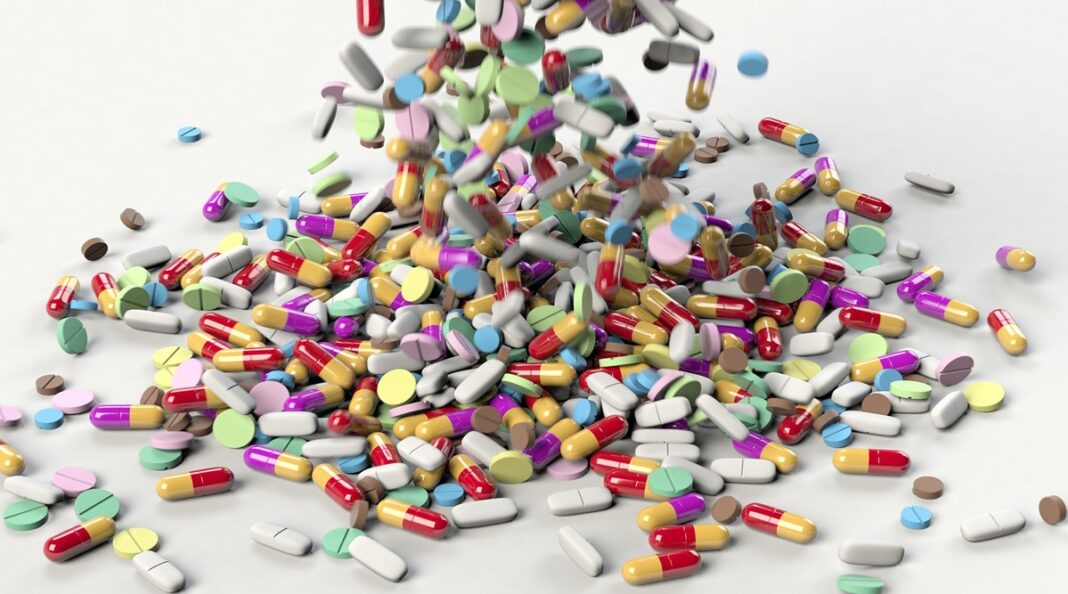By Amit Raj Sinha As the third-largest pharmaceutical business in the world by volume, India makes a substantial contribution to world health. Despite obstacles, the sector demonstrated its power and devotion by providing vital medications to more than 120 nations over the course of the past two years as the world faced the COVID-19 pandemic. The goods of the Indian pharmaceutical business continue to enhance patient health outcomes globally, with an export value of $24.
44 bn (2020–2021). Additionally, our nation meets 60% of the global need for vaccines and is a manufacturing powerhouse with international recognition. Tackling COVID-19 became possible only when the pharmaceutical sector created domestic vaccinations and exported more than six crore doses.
Technologies propelling innovation The pharmaceutical industry responded to the problems brought by the pandemic, which created an unprecedented scenario for the healthcare sector as a whole. the industry is increasing its innovation and research and development (R&D) skills to provide cutting-edge products at competitive rates after having established itself as one of the leaders in the generic market. To combat the outbreak and its negative impact on production, pharmaceutical companies have tried novel technologies.
For instance, mid-mile Pharma is seeing rapid collaboration to change drug distribution, supply networks, and manufacturing. With the Indian government’s newly proposed Research-linked Incentive (RLI) Scheme, the industry is set to benefit from a potential tax incentive increase on R&D, encouraging pharma companies to upsurge their average revenue spends by 5-6% on R&D, to at least 15%. Moonshot areas identified under this scheme that R&D can focus on are complex generics, precision medicine, orphan drugs, vaccines, biosimilars, and antimicrobial.
Undoubtedly this is going to give rise to sophisticated personalized medicine and 3D printing of precision medicine. 3D printing technology can revolutionize medicine by customizing the dose, releasing specific profiles, and incorporating multiple ingredients in a polypill. 3D printing also helps us reduce wastage & builds in sustainability.
Impact on safe pharmacy practice The pharmaceutical industry worth trillions of dollars has evolved alongside medicines, moving from small-scale manual processing with basic instruments to large-scale manufacture with sophisticated machinery. The internet of things, artificial intelligence, robots, and sophisticated computers are still evolving, and modern manufacturing technologies are still in the loop. But the conventional methodologies, procedures, and business models for manufacturing purposes are getting better with every passing day.
These technologies can significantly improve the speed, effectiveness, adaptability, and consistency of the pharmaceutical industry’s output and performance. The next generation of pharmaceutical products will be defined on the basis of the use of these technologies. Although digitization has changed manual processes, professionals must ensure that quality controls and safety standards are still managed manually.
Every process cannot be machine-dependent for it is the combination of human intellect and artificial intelligence that can bring about optimum results. The importance of safety and quality procedures shouldn’t be diminished by the craze to adapt to technology. Technologies for quality production A process-driven sector with rigorous regulations governs pharmaceutical manufacturing.
A manufacturing error can, at best, be expensive, and at worst, it can be life-threatening, especially if a consumer has already bought a product. The Food & Drug Administration (FDA) has established a number of rules that the industry must follow, such as the Current Good Manufacturing Practices (cGMP). The core of cGMP is product quality; it ensures proper monitoring, design, and management of manufacturing facilities and procedures.
Along with the desired management processes and methods for maintaining the best laboratory testing procedures, cGMP provides instructions on obtaining high-quality raw materials. The efficiency and safety of pharmaceutical goods vary as a result of a variety of factors. Discovering the use of specific ingredients such as high functionality excipients and pre-formulated excipients often empower manufacturers with raw material that is versatile and economic.
Such ingredients have properties that address most manufacturing requirements – tableting, hard capsule production, chewable production and more. This case in point highlights the beauty of new advancements in tech that yield better quality products tailored to the method of consumption and packaging as well. Tech-enabled consistent R&D is improving the production process to streamline it and make it more effective and affordable for pharmaceutical producers.
Radio frequency identification and inventory management systems both contribute to cost savings and improved asset management, particularly for inventories. Cloud computing and enterprise resource planning solutions facilitate communication between staff and management, streamlining manufacturing processes and lowering storage requirements. Sailing Ahead The pandemic put the spotlight on fostering innovation as it provided valuable insights into the industry’s ability of speedy discoveries and modifications to products, increasing its performance.
The Indian pharmaceutical sector already enjoys the advantage of a sizable reach in the international pharmaceutical market. To meet the unmet medical requirements of patients around the world, our nation must now advance up the value chain by stepping up its R&D and innovation efforts. Innovation funding, continuous regulatory reforms, industry-academia partnership, and innovation infrastructure with a patient-centered focus will be the main drivers.
In order to satisfy the philosophy of Vasudhaiva Kutumbakam (the world is one family), various industry players may work together with the aid of an enabling ecosystem to make India an innovation hub and provide consumers in our nation and throughout the world with innovative, quality, and holistic medical solutions. For a country that’s a goldmine of raw produce, the industry needs to leverage its “Make In India” stance on a global scale, bringing to international markets a value chain that can elevate the entire pharmaceutical landscape. (The author is MD & CEO, Sigachi Industries Limited.
Views expressed are personal and do not reflect the official position or policy of FinancialExpress. com. ).
From: financialexpress
URL: https://www.financialexpress.com/healthcare/healthtech/how-technology-is-driving-the-indian-pharma-industry-towards-holistic-product-led-solutions/2579659/



